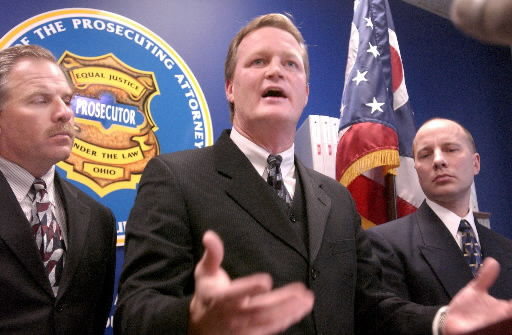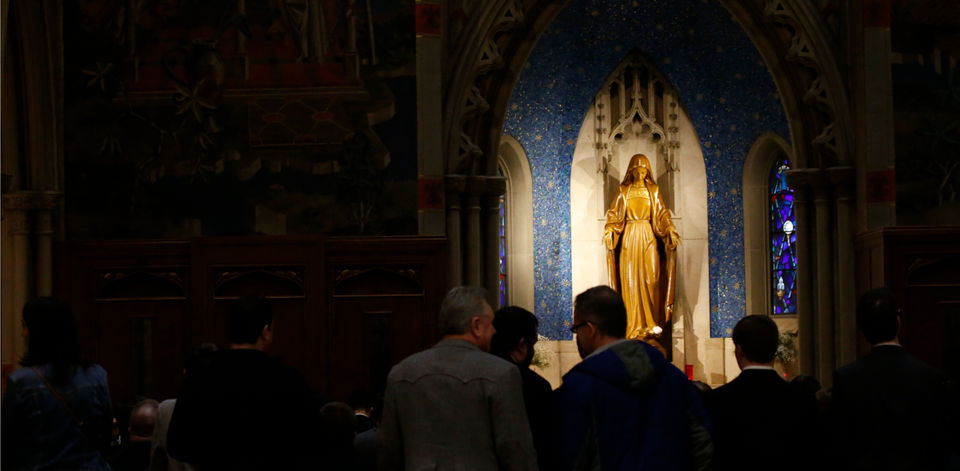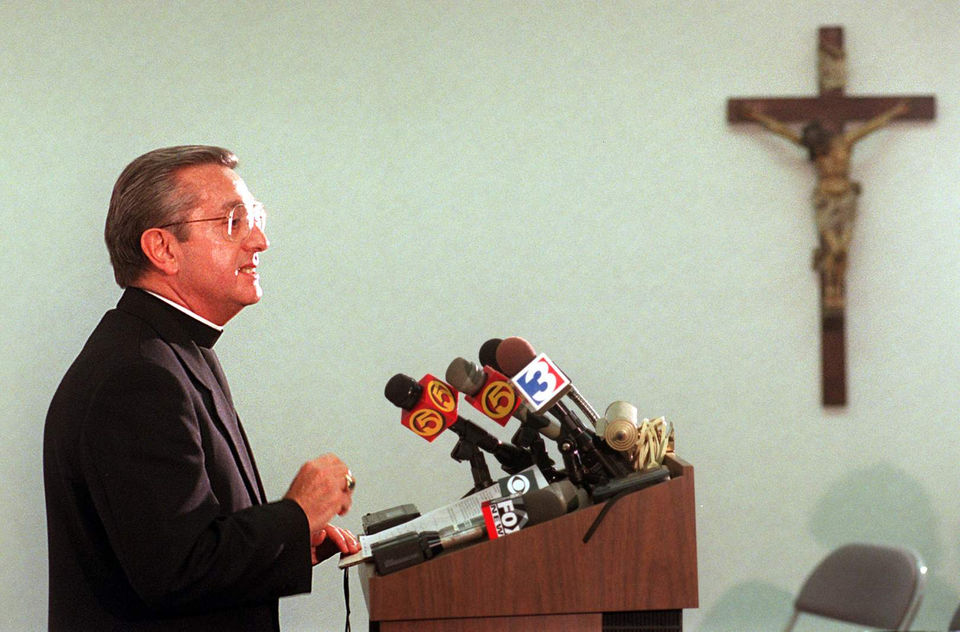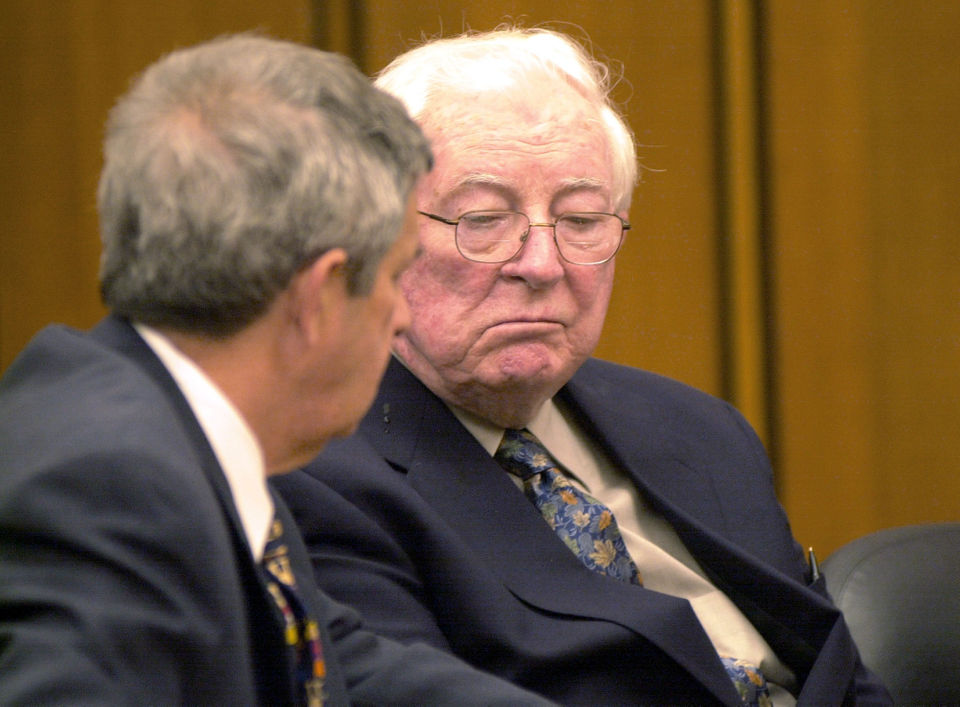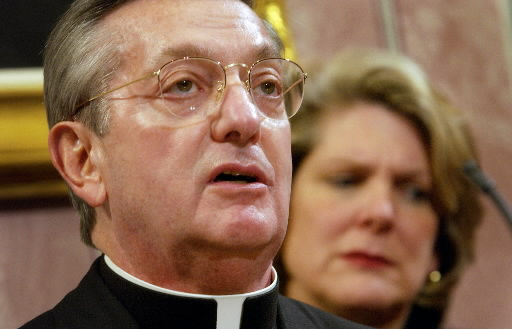Catholic Priest Sex Scandal: Will Cleveland-area Residents Ever Get to Know the Names of Priests Accused in the Past?
By Cory Shaffer
Sixteen years before the public release of a groundbreaking grand jury report that detailed decades of sexual abuse at the hands of Pennsylvania’s priests, Cleveland’s top prosecutor launched his own inquest that uncovered allegations against more than 140 priests in the Catholic Diocese of Cleveland spanning decades. Unlike residents in Pennsylvania, Ohioans never got to see the vast majority of the allegations or learn the names of priests named as abusers and still had access to children. A Cuyahoga County Common Pleas Court judge ruled in 2004 that the state’s laws that cloak the work of grand juries in secrecy outweigh the public’s interest in learning the body’s findings, after then-Cuyahoga County Prosecutor William Mason reversed his earlier stance that he would support a full release of the report. In the wake of the release of Pennsylvania’s case, Cuyahoga County’s current prosecutor, Michael O’Malley, said his hands remain tied by the ruling and does not see a way to secure the report’s release. “That decision was made 14 years ago,” O’Malley said. Dioceses in other cities have announced that they will soon voluntarily release lists of priests under their umbrella who had been accused, in some cases dating back to 1950. Cleveland’s diocese has published names of priests who have been removed from their assignments after credible sexual abuse allegations were made against them since 2002. The number of priests named on the diocese's website amounts to 29, leaving a handful of prosecutors and grand jurors as the only people to know the full list of accused priests in Northeast Ohio.
Investigation opens Mason opened his probe in early 2002, joining a flurry of local prosecutors across the country who began investigating the extent of priest abuse following the revelation of widespread abuse and a cover-up that stretched into the Vatican. The team of four investigators led by Assistant Cuyahoga County Prosecutor Rick Bell began serving subpoenas on the diocese in March of that year. Then-Bishop Anthony Pilla swiftly announced that he suspended 15 active priests accused of sex abuse and identified another 13 retired and former priests, and released their names to the public, according to the Plain Dealer. In the 15 years before that announcement, diocesan officials had reported just three child sex-abuse allegations against priests to the county’s Department of Children and Family Services, the newspaper said at the time.
Hundreds of binders of evidence The investigation into the diocese lasted seven months and ended in December 2002, when Mason announced at a news conference in front of a wall of nearly 500 binders of evidence that the grand jury handed up indictments against one priest and six diocesan employees, according to court records. The probe’s findings uncovered evidence of a much greater footprint of potential abuse. Grand jurors identified 1,000 potential victims of sexual abuse, with accusations against 496 possible sexual offenders, of whom 145 were priests, the Plain Dealer reported. Of the identified priests, 64 still lived in the Greater Cleveland area at the time, court records say. The state’s statute of limitations, which required victims to report abuse allegations within six years of reaching the age of 18, left Mason unable to prosecute nearly half of the allegations, he said at a news conference, according to reports. Mason’s office presented the grand jury 92 cases that included the strongest evidence and were within the statute of limitations, but the grand jury only levied charges in the 11 cases, the Plain Dealer reported. Among those who were not charged were Pilla and Auxillary Bishop A. James Quinn. Grand jurors declined to indict the pair on obstruction of justice charges related to the diocese’s handling of sexual abuse allegations in the past.
Who was indicted and why The Rev. Daniel McBride, 76, a retired senior associate pastor at St. Barnabas in Northfield Center Township, was indicted on charges of racketeering, compelling prostitution and promoting prostitution. He was accused of meeting a boy who was being pimped out of Marshall McCarron's Tavern in Cleveland and taking him to Chautauqua, N.Y., to have sex, according to court records. Six employees at Parmadale, a residential treatment center run by Catholic Charities, were brought up on sex charges that accused them of abusing teenagers at the center. McBride pleaded guilty to a felony promoting prostitution charge in 2003. Then-Common Pleas Judge Ann T. Mannen sentenced him to three years of probation. He served two years of probation before Mannen granted a July 2005 request to terminate it early. Of the six employees, two pleaded guilty to sex charges.
Legal wrangling The Plain Dealer and other news outlets requested the complete grand jury investigative file from Mason’s office within days of the news conference. Pilla and the Diocese went to the high-powered law firm of Jones Day to keep the records under wraps. Lawyer Stephen Sozio wrote to Mason 10 days after the indictments were announced, warning in a letter that the diocese would sue Mason if he released records from the grand jury investigation to the public, according to the Plain Dealer. Sozio argued that the files contain "highly confidential, personal and intimate information," and he pointed Ohio law that says grand jury investigative materials must be kept secret. Mason had originally signaled that he would support the public release, but he backpedaled, saying a review by his lawyers found the material would fall under the secrecy law. He asked Cuyahoga County Common Pleas Judge Brian Corrigan, who presided over the grand jury that carried out the investigation, to determine whether Mason could release some of the materials to certain public agencies, including the Department of Children and Family Services.
|
.
Any original material on these pages is copyright © BishopAccountability.org 2004. Reproduce freely with attribution.
